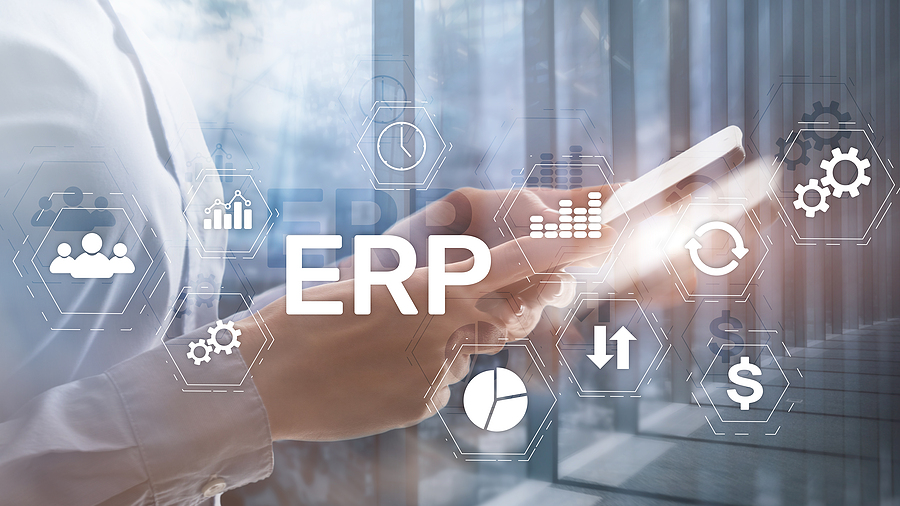Are you planning to still be in business in another decade? Most companies would say yes, but without the right technology in place, that future could come at quite a cost. Even if your organization is running an ERP today, continuing to run your business on a legacy system long into the future could inhibit you from reaching that next level. But it’s not all bad news: You can future-proof your business for later by adding a next-generation ERP solution today.
Creating Your Future-Proof ERP Strategy
Now, more than ever, ERP developers are taking the idea of flexible ERP seriously. They’re designing systems around the end goal of enhanced productivity, visibility, and collaboration, rather than considering their software a stand-alone product. Vendors such as Acumatica are allowing third-party developers to create APIs that bridge their cloud ERP software with extensions for common office productivity software, ecommerce shopping systems, and much more.
As you’re considering the many options on the market, it’s important to future-proof your choice. To do so, consider several factors that impact how you use your system both now and in the future.
Cloud Deployment
Stand-alone enterprise resource planning systems previously relied on complex hardware and site licenses that limited their use to a set number of users. Now, cloud-based ERP solutions work on any internet-enabled device, from laptops to mobile. Cloud software is also highly flexible, scaling to changing organizational structures quickly and easily.
Bandwidth
Bandwidth is more a function of your internet capacity than it is of the system itself, but it is an important consideration for cloud EPR strategies. Cloud ERP makes frequent updates to the system so the data is available in real-time. With data flowing back and forth constantly, as well as many people on the internet at once, can your system handle the workflow?
Consider updating your current connection or finding alternatives to maximize bandwidth.
Roles and Responsibilities
Although some companies may need an integration specialist whose job it is to ensure smooth integration with new software, others may find that anyone on their staff can become an integration specialist, depending on the need.
Some systems make it easy to integrate their software with third party applications. For example, Acumatica cloud ERP offers an open API structure and encourages third-party developers to create software that integrates seamlessly with their systems. Acumatica features its own Acumatica Marketplace where customers can find third-party applications that work well with their base software.
Data Inventory
Another step toward future-proofing your system is to take an inventory of your current data and forecast what data you will need in the future. Gather together a list of all data sources from every part of the company. The list may include:
- Accounting
- Finance
- Marketing
- Sales
- Operations
- Warehouse/Inventory
- Product Development
When you finally decide on a new ERP system, you’ll be able to migrate each of these databases into the ERP systems. The list also serves as a guide to help you determine who among your staff may be heavy users of the new ERP system and which departments may need priority training.
Workflow Documentation
Another way to future proof your system is to document the workflow: how information flows throughout your company, not necessarily how people are using the current system. For instance, study how an order moves from a customer through the company to fulfillment, including the steps the order goes through and which department handles each step. This kind of workflow documentation helps with both the setup of new systems and determining integration needs. Potential bottlenecks in the system can also be examined and addressed.
Legacy Integrations
Lastly, consider software and systems that currently do not connect to the ERP but may benefit from integration, such as office productivity software and business intelligence (BI) systems.
Future-Proof for Future Success
We know that cloud computing is a new way of thinking about software, and one that offers so many benefits it’s likely to remain a viable option for years to come. We also know that enterprise resource planning offers many benefits to companies, and that companies serious about growth, development, and profitability are embracing the benefits that ERP has to offer.
With both of these facts in mind, future-proofing business software means embracing a cloud-based ERP strategy that encompasses ERP integration. To remain competitive, taking this path may be a good option for your business, too.
Future-Proof to the Cloud With ASI
Ready to move your ERP solution to the cloud so you’re ready for whatever the future holds? Whether it’s Acumatica Cloud ERP or Sage 100cloud, Accounting Systems Inc. has the expertise and partnerships in place to help you optimize today for the business needs of tomorrow. Find the right future-proof integrated cloud ERP solution for your business today by contacting one of our ERP experts.

